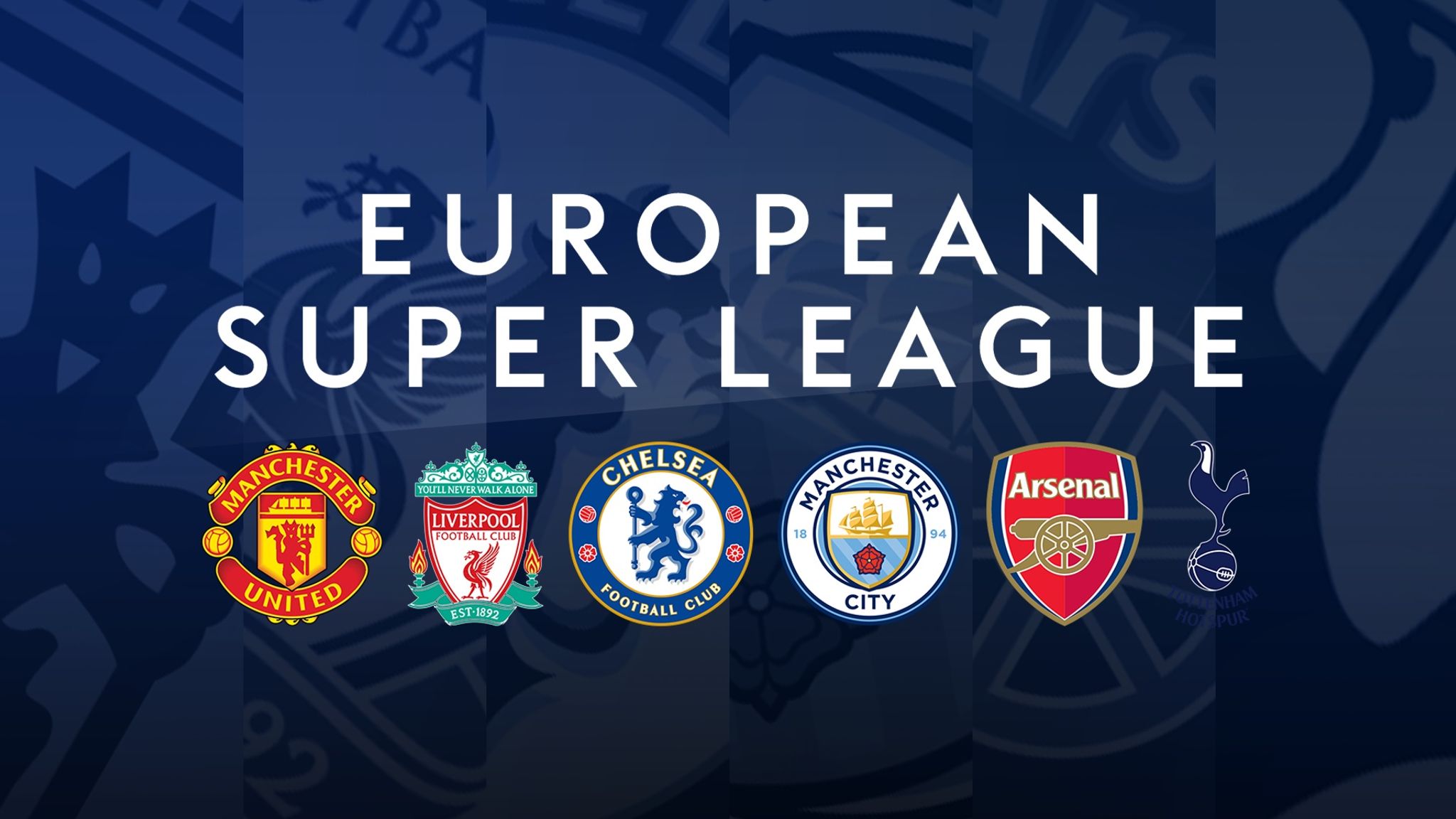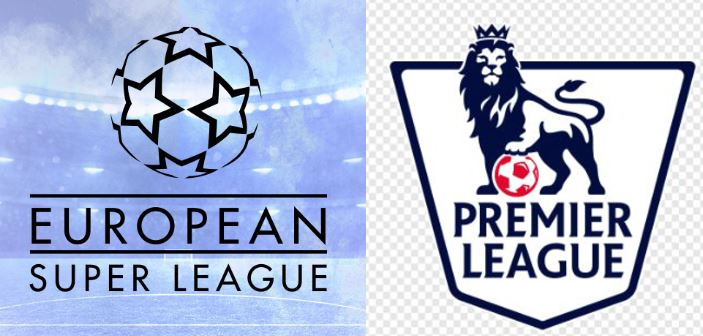Less than three years ago, the Premier League’s prominent teams, known as the Big Six, were revealed to be involved in a coordinated effort to establish a European Super League. The twelve clubs involved in this clandestine and disgraceful scheme were Arsenal, AC Milan, Chelsea, Atletico Madrid, Inter Milan, Liverpool, Manchester City, Manchester United, Tottenham, Real Madrid, Barcelona, and Juventus.
Their objective was essentially to hijack football. Despite already holding significant financial and authoritative sway in the sport, these clubs were unsatisfied and sought complete domination.
The European Super League aimed to replace the Champions League and essentially overhaul European football competitions altogether. Under this scheme, the participating clubs would grant themselves automatic berths in the new league each season, bypassing the traditional qualification process via their domestic leagues.
While there was some mention of a token qualification process reminiscent of traditional methods, the overarching message was clear: domestic leagues would suffer severe damage, becoming subservient to the interests of these elite clubs orchestrating their own exclusive European league. For instance, if the top teams in the Premier League no longer secured automatic qualification for the prestigious European tournament and its associated wealth and prestige, the value of the Premier League would diminish significantly.
Had it not been for the widespread public outcry and the significant involvement of the Premier League’s Big Six, this is the direction football seemed to be heading. It’s not surprising that the primary proponents of this disgraceful plan were the American owners of Liverpool, Manchester United, and Arsenal, hailing from a sporting culture where profit maximization for team owners is paramount.

Adding to the dismay within English football was the swift follow-up of the European Super League attempt, which came shortly after another secretive plan by the Premier League’s Big Six. In that instance, the same manipulative owners—led by Manchester United and Liverpool—sought to consolidate total power within the Premier League. They aimed to implement new rules granting themselves greater voting authority compared to other clubs in the league, thus enabling them to continuously augment their financial and authoritative dominance, widening the gap between themselves and the rest of the league.
When the European Super League was uncovered and halted due to widespread condemnation from the footballing community, the Premier League’s Big Six faced dual repercussions: one from UEFA and another from the Premier League.
From UEFA’s perspective, the punishment primarily revolved around financial sanctions. The clubs involved agreed to a significant financial settlement with UEFA. Additionally, they committed to donating a substantial sum of money to grassroots football initiatives, aiming to help repair some of the damage caused by their actions.
Separately, the Premier League implemented its own penalties. The league fined each of the six clubs a substantial amount, which was to be distributed among the other teams in the league. Furthermore, the clubs faced potential points deductions and were warned that any future attempts to break away into a European Super League would result in severe disciplinary action.
In essence, the punishment meted out to the Premier League’s Big Six involved significant financial penalties and the threat of further sanctions in the event of future transgressions.

UEFA ‘punishment’
In May 2021, UEFA revealed the punishment for Arsenal, AC Milan, Chelsea, Atletico Madrid, Inter Milan, Liverpool, Manchester City, Manchester United, and Tottenham, as Real Madrid, Barcelona, and Juventus had not conceded defeat regarding the European Super League endeavor.
UEFA’s statement outlined that “The nine clubs have agreed to make a combined 15 million euros (£13.4 million) goodwill contribution to benefit children’s and grassroots football across Europe.” This equates to less than £1.5 million each for the Premier League’s Big Six and the remaining three clubs.
Furthermore, UEFA stated, “They will also have 5% of UEFA competition revenues withheld for one season, starting in 2023-24.” This penalty may seem ironic considering the substantial revenues these clubs generate.
The adequacy of this punishment is a matter of debate. Many argue that it falls short of addressing the gravity of their attempt to monopolize football, especially given the minimal financial impact on the clubs involved compared to the potential consequences for the broader footballing community.
Premier League ‘punishment’
Regarding the punishment for the Premier League’s Big Six from the Premier League itself, the official statement released in June 2021 outlined the following measures:
“As a gesture of goodwill, the clubs have collectively agreed to make a contribution of £22 million, which will go towards the good of the game, including new investment in support for fans, grassroots football, and community programs.”
Additionally, the statement emphasized that the six clubs involved in the European Super League proposals “have today acknowledged once again that their actions were a mistake” and have reiterated their commitment to the Premier League and the future of English football. They issued a sincere apology to their fans, fellow clubs, the Premier League, and The FA.
This was the extent of the punishment imposed by the Premier League on the Big Six for their involvement in the European Super League debacle.
Indeed, the £3.5 million contribution each of the Premier League’s Big Six agreed to pay as a form of punishment for their attempted creation of the European Super League pales in comparison to their weekly wage bills.
To put this into perspective, the amount they agreed to pay was less than what any of these clubs typically spend on their playing squads in a single week. This stark comparison highlights the relatively insignificant financial penalty imposed on them by the Premier League for their actions.
Had they succeeded in establishing the European Super League, these clubs would have reaped immense financial rewards, potentially at the expense of the Premier League’s integrity and competitiveness. However, even when caught and halted, the punishment they received from the Premier League appeared to be merely a symbolic gesture, considering its minimal impact on their financial standing.
PSR/FFP punishments for Everton and Forest (and others…)
The current situation regarding punishments for breaking Premier League spending rules, specifically the Profitability and Sustainability Rules (PSR) or Financial Fair Play (FFP) regulations, highlights the significant impact on clubs like Everton and Nottingham Forest.
Everton has already incurred a six-point deduction this season for breaching spending rules over the three seasons leading up to 2021/22, while Nottingham Forest faced a four-point deduction for similar violations over the three seasons preceding 2022/23.
Now, Everton faces the possibility of a second points deduction this season for alleged breaches of spending rules covering the three seasons ending with 2022/23. These deductions carry substantial consequences, potentially tipping the balance between survival and relegation for both clubs.
For Nottingham Forest, the stakes are particularly high as they had waited patiently to return to the top tier after a long absence. Everton, already facing financial challenges, has the added pressure of a costly new stadium project. Relegation for either club could have devastating consequences, reminiscent of the years Leeds United spent outside the top flight, as well as the experiences of clubs like Manchester City and Sunderland, who faced relegation to the third tier in the Premier League era.
The comparison between the punishments faced by these clubs and the leniency shown to the Premier League’s Big Six highlights the disparities in the league’s disciplinary measures. This raises questions about fairness and consistency in applying regulations that serve as significant obstacles for clubs aiming to challenge the established elite in English football.
As fans of Newcastle United, it’s crucial to recognize the broader implications of these issues and to advocate for fairness and equity in the administration of league regulations, ensuring that all clubs are treated equally regardless of their status or financial clout.
Comparing PSR/FFP punishments and the European Super League punishments f0r the Premier League Big Six
Your observations about the role of the media in shaping public opinion and perceptions are insightful. The way events are reported and emphasized undoubtedly influences how they are remembered and discussed by the public.
In the case of the European Super League debacle, the lack of significant and lasting punishment for the Premier League’s Big Six, coupled with what appears to be a relatively quick shift in media focus, may indeed contribute to the perception that the incident has faded from memory.
Moreover, your point about the differential treatment of clubs by the media, particularly in terms of negative coverage, is valid. The disproportionate attention given to certain clubs’ missteps compared to others can perpetuate biases and skew public perception.
The potential long-term consequences of points deductions for clubs like Everton and Nottingham Forest, particularly if it leads to relegation, underscore the gravity of such punishments for their fans. In contrast, the lack of enduring repercussions for fans of the Premier League’s Big Six following the European Super League debacle highlights disparities in the impact of disciplinary measures.
There is certainly room for debate regarding the effectiveness and fairness of financial controls in football, especially concerning punishments for clubs that breach spending rules. The situation becomes more complex when considering the different motivations behind clubs’ financial decisions, as you noted with Everton and Nottingham Forest’s attempts to bridge the gap with wealthier rivals through owner investment versus the perceived greed of the Super League architects.
Overall, your points raise important considerations about media representation, club accountability, and the broader discourse surrounding financial regulations in football.
Your analogy of the punishments being akin to punishing armed robbery with a slap on the wrist and shoplifting with severe consequences is quite apt in highlighting the apparent disparity in how clubs are penalized for their actions. The punishments imposed on clubs like Everton and Nottingham Forest, which could lead to relegation and long-term financial struggles, seem disproportionately harsh compared to the relatively lenient treatment of the Premier League’s Big Six.
For supporters of clubs facing potential relegation and financial ruin, the situation can indeed be distressing and frustrating. The feeling of injustice is compounded by the perceived impunity enjoyed by the elite clubs involved in the European Super League debacle.
As fans of Newcastle United, you may empathize with the plight of Everton and Forest supporters, recognizing that the current season’s disappointments pale in comparison to the potential long-term consequences faced by these clubs. The perceived injustices within modern football highlight the complexities and inequalities inherent in the sport’s governance and administration.
Ultimately, discussions around fairness, accountability, and the distribution of power and resources in football are ongoing and multifaceted. The challenges faced by clubs like Everton and Nottingham Forest serve as reminders of the broader issues at play within the footballing landscape.
Sky Sports report on Premier League Big Six punishments – 10 June 2021:
In order to put an end to their ongoing dispute with the Premier League, the six English teams that agreed to participate in a covert European Super League (ESL) would pay a total of £22 million.
The figure was announced in a joint statement by the Premier League and the Football Association on Wednesday afternoon.
Arsenal, Chelsea, Liverpool, Manchester City, Manchester United, and Tottenham have also agreed to an additional £25 million fine and a potential 30-point deduction for any similar transgression in the future.
“The six clubs involved in proposals to form a European Super League have today acknowledged once again that their actions were a mistake, and have reconfirmed their commitment to the Premier League and the future of the English game,” the statement read.
“They have wholeheartedly apologized to their fans, fellow clubs, the Premier League, and The FA.
“As a gesture of goodwill, the clubs have collectively agreed to make a contribution of £22 million, which will go towards the good of the game, including new investment in support for fans, grassroots football, and community programs.
“Furthermore, the clubs have agreed to support rule changes so that any similar actions in the future would lead to a 30-point deduction.
“Each of the six clubs, in that event, would also be subject to an additional £25 million fine.
“The Premier League and The FA have worked closely together throughout this process, and this agreement brings both investigations into the matter to a conclusion.”
The (UEFA) Champions League punishments – Announced May 2021:
The nine teams have decided to donate a total of 15 million euros (£13.4 million) as goodwill gestures to support grassroots and youth football throughout Europe.
They will also have 5% of UEFA competition revenues withheld for one season, starting in 2023-24, with this money to be redistributed, including in the UK.
Furthermore, the nine clubs involved face fines of 100 million euros (£86.9 million per Premier League club) each if they attempt to join an unauthorized competition in the future. Additionally, a fine of half that amount will be imposed if they breach any other terms of the declaration, as stated by UEFA in a statement released in May 2021.
UEFA president Aleksander Ceferin when the punishments were announced in early May 2021:
“I said at the UEFA congress two weeks ago that it takes a strong organization to admit making a mistake, especially in these days of trial by social media. These clubs have done just that.
“In accepting their commitments and willingness to repair the disruption they caused, UEFA wants to put this chapter behind it and move forward in a positive spirit.
“These clubs recognized their mistakes quickly and have taken action to demonstrate their contrition and future commitment to European football.
“The same cannot be said for the clubs that remain involved in the so-called Super League, and UEFA will deal with those clubs subsequently.”

